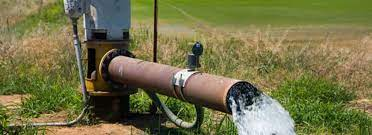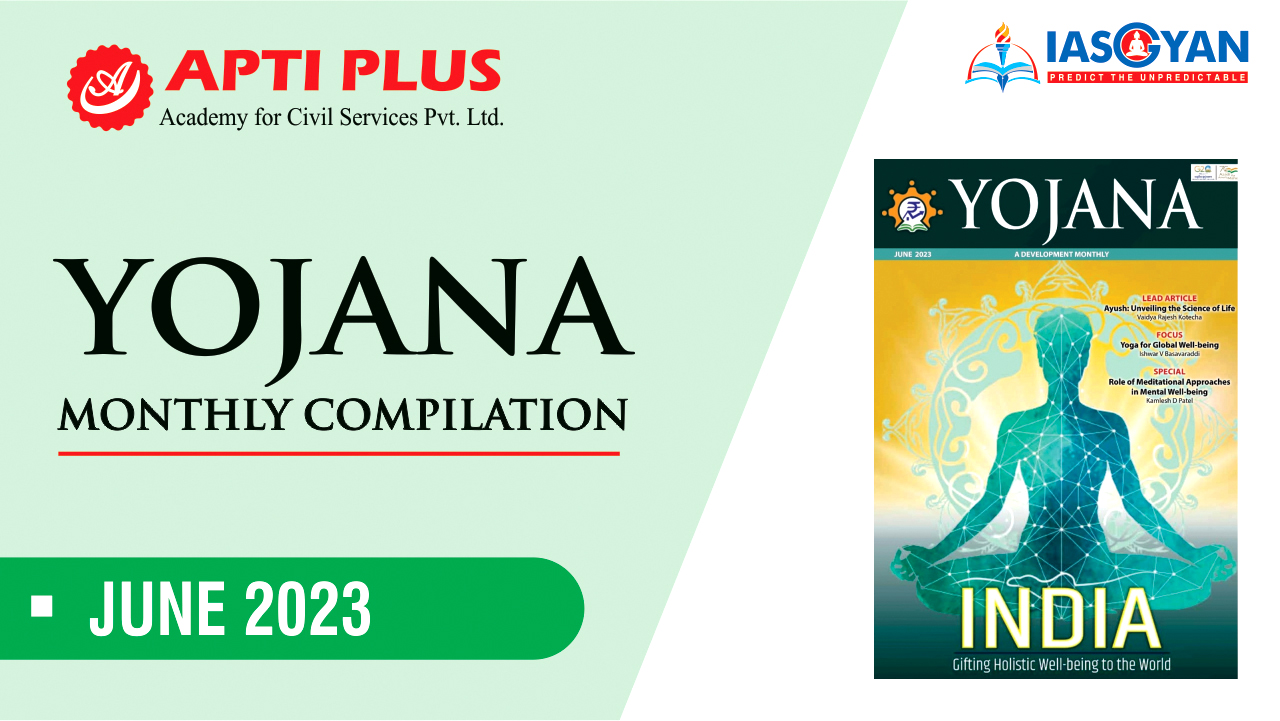Description

Disclaimer: Copyright infringement not intended.
Context
Various initiatives and measures taken by the Central Government of India to improve and manage groundwater conditions in the country.
Details
Various initiatives and measures are taken by the Central Government of India to improve and manage groundwater conditions in the country.
Central Ground Water Board (CGWB)
- Implements the Central Sector Scheme 'Ground Water Management & Regulation' in India, including West Bengal.
- Delineates aquifer disposition and characterizes them for preparing area-specific ground water management plans.
- Conducts Ground Water Monitoring and Resource Assessment.
- Regulates Groundwater usage.
- Shares information generated with States/UTs for suitable interventions.
Model Bill for GroundWater Legislation
- The Ministry circulated a Model Bill to all States/UTs for enacting suitable groundwater legislation, including provisions for rainwater harvesting.
- 21 States/UTs, including West Bengal, have adopted and implemented the groundwater legislation based on the Model Bill.
Model Building Bye Laws (MBBL)
- The Ministry of Housing & Urban Affairs (MoHUA) formulated MBBL in 2016.
- Mandates all buildings with a plot size of 100 Sq.m. or more to include rainwater harvesting proposals.
- 35 States/UTs have adopted the features of the Bye Laws.

Jal Shakti Abhiyan (JSA)
- Launched in 2019 in water-stressed blocks of 256 districts, continued in 2021 and 2022 across the entire country (rural and urban areas).
- Aims to harvest monsoon rainfall through artificial recharge structures, watershed management, intensive afforestation, and awareness generation.
- JSA for 2023 launched with the theme "Source Sustainability for Drinking Water."
Amrit Sarovar Mission
- Launched by the Prime Minister on 24th April 2022.
- Aims to develop and rejuvenate 75 water bodies in each district of the country as part of Azadi ka Amrit Mahotsav celebration.
Atal Bhujal Yojana
- Implemented by the Central Government in collaboration with states in water-stressed areas of certain states.
- Aims for demand-side management through scientific means involving local communities at village levels for sustainable groundwater management.
Central Ground Water Authority (CGWA)
- Constituted under the Environment (Protection) Act, 1986, for regulating and controlling groundwater usage by industries, mining, and infrastructure projects.
- Issues No Objection Certificates (NOC) for groundwater extraction based on guidelines.
National Aquifer Mapping Program (NAQUIM)
- Implemented by CGWB in the country, covering an area of 25.15 lakh sq km.
- NAQUIM study report and management plans shared with States/UTs for suitable interventions.
Master Plan for Artificial Recharge to Groundwater-2020
- Prepared by CGWB in collaboration with States/UTs.
- Envisages construction of about 1.42 crore Rain Water Harvesting and artificial recharge structures to harness 185 Billion Cubic Metres of water.
- Shared with States/UTs for suitable interventions.
About Central Ground Water Board (CGWB)
- The Central Ground Water Board (CGWB) is a governmental organization established under the Ministry of Jal Shakti, Government of India.
- It was founded in 1970 as a part of the Ground Water Resources Development and Management Program (GWRDMP).
Mandate and Responsibilities
- CGWB is responsible for scientific studies, assessment, and monitoring of groundwater resources in India.
- It formulates policies and guidelines for the sustainable management and development of groundwater.
Groundwater Monitoring
- CGWB conducts regular monitoring of groundwater levels in wells across the country to assess the water availability and groundwater trends.
- It maintains a national groundwater database for effective planning and management.
National Aquifer Mapping Program (NAQUIM)
- CGWB implements the National Aquifer Mapping Program to map and characterize the aquifers in different regions of India.
- The program helps in understanding the groundwater potential and quality.
Artificial Recharge to Groundwater
- CGWB promotes artificial recharge to replenish depleting groundwater levels.
- It assists in constructing rainwater harvesting and artificial recharge structures to store rainwater and channel it to aquifers.

About Central Ground Water Authority (CGWA)
- The Central Ground Water Authority (CGWA) is a regulatory body established under the Environment (Protection) Act, 1986.
- It operates under the Ministry of Jal Shakti, Government of India.
Regulation and Control
- CGWA is responsible for regulating and controlling groundwater usage by industries, mining projects, infrastructure projects, etc.
- It issues No Objection Certificates (NOC) for groundwater extraction to various industrial and project proponents.
Guidelines and NOC Issuance
- CGWA formulates guidelines for groundwater extraction and management.
- It grants NOCs based on groundwater availability and sustainability.
Jurisdiction
- CGWA operates both at the national and regional levels.
- It collaborates with State Ground Water Departments for better coordination and management.
Role in Water Stressed Areas
- CGWA focuses on water-stressed areas where groundwater resources are overexploited or depleted.
- It takes measures to regulate groundwater usage and promote sustainable management practices.
|
PRACTICE QUESTION
Q) Which of the following statements about the Central Ground Water Board (CGWB) and Central Ground Water Authority (CGWA) is correct?
A) CGWB is a regulatory body responsible for regulating and controlling groundwater usage in India.
B) CGWB conducts regular monitoring of groundwater levels and implements the National Aquifer Mapping Program (NAQUIM) in the country.
C) CGWA is responsible for scientific studies, assessment, and monitoring of groundwater resources in India.
D) CGWA operates at the regional level and collaborates with State Ground Water Departments for groundwater management.
Answer: B
|
https://pib.gov.in/PressReleasePage.aspx?PRID=1941105














